Lulua - 210947 - old African Lulua mask - Congo. - Verkocht
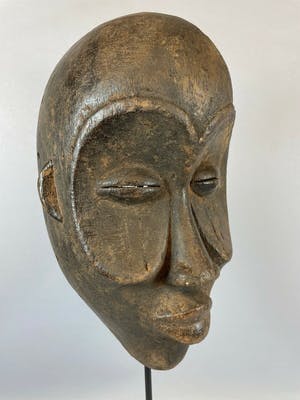
- Omschrijving
- Lulua
| Type kunstwerk | Etnografica |
| Periode | 1945 t/m 1999 |
| Techniek | Hout |
| Stijl | Afrikaans |
| Onderwerp | Masker |
| Afmetingen | 27 x 22 x 16 cm (h x b x d) |
Expressive african Lulua mask from Congo, with extremely abstract face.
Hand carved from a single piece of dark wood.
Size: 27 cm.
Taxatiewaarde:275 -325 euro.
The professional standard is not included in the auction. You can order it there for 29.85 euros.
The Lulua people are a Bantu ethnic group settled along the Lulua River valley in south central Kasai-Occidental province, Democratic Republic of the Congo. The Lulua are in fact a collection of small groups whose home bordered by the larger Luba state and the related Songye people and Chokwe people, with whom they share a very similar culture, history, and language.
The name Lulua seems to have appeared in the last quarter of the 19th century, previously these groups simply being ethnically Luba people outside the Luba (or Baluba) political structure. Georges Nzongola-Ntalaja, in his history of Congo, describes the history Lulua ethnicity as an invented ethnicity
n fact, the Lulua share language, matrilineal inheritance, and many other cultural traits with the Luba people and the Kondji or Luntu peoples. All three have been considered subgroups of the Luba, tracing their origins back to the Luba empire based in Katanga.
In the 19th century, the Chokwe—another related group—identified a disparate collection of neighboring farming and hunting groups in the area between the Upper and Lower Kasai and Lulua Rivers as the "Beena Luluwa" (singular, "Mwena Luluwa") meaning "people by the Luluwa." The powerful Luba empire in the 18th century helped push these small Luba hunting groups into their present home, according to oral sources, coming from the west. Their collective identity was limited to the institution of the "Kalamba", a judge and war leader to whom these small groups turned to in times of internal or external conflict. Nineteenth century European missionaries and travelers contributed to this process of ethnic differentiation from the Luba, defining these small communities in contradistinction to the states of their neighbors. Father A. Van Zandijcke, a Belgian missionary, reported that until 1870 there was no agreed collective name for the Lulua, with each kinship group or chieftaincy identifying themselves independently. By the first decade of the 20th century, the coming of Belgian colonialism along with pressure from the Luba empire and other neighbors, began to develop a Lulua collective identity.
Land disputes with neighbors helped lend a both a collective identity as well as feeding ethnic conflict, as did the Belgian colonial policy of formalising a "kingship", in the style of their neighbors, for the Lulua. The tensions of the late colonial period finally culminated it what has been called the "Lulua--Baluba War", as communal violence exploded on 11 October 1959 Lulua lands are bordered on the south by other small ethnic groups, including the Mbagani, Lwalwa, Southern Kete, and the Salampasu. Rural Lulua remain mostly farmers.
Lulua arts are highly prized in the international collectors market. Lulua carved wood figures are identified with distinctive and extensive portrayal of scarification patterns (despite the fact that Lulua scarification traditions largely died out in the 19th century).
Carved figures serve a number of spiritual and decorative roles and are known for their refined artistry, while Lulua wooden masks are confined to secret society rituals and are made to be disposed after use.
| Conditie | |||||||||||
| Conditie | Zeer Goed | ||||||||||
| Transport | |||||||||||
| Afhalen | Het werk is af te halen op locatie. Als koper dient u zelf verpakkingsmateriaal mee te nemen. De locatie is: Hengelo, Nederland | ||||||||||
| Verzenden | Pakketpost | ||||||||||
| Prijs | Tot 10 kg.
| ||||||||||
| Garantie | |||||||||||
| Garantie | Bij het plaatsen van het item verklaar ik mij akkoord met de garantievoorwaarden zoals deze gelden op Kunstveiling ten aanzien van een juiste omschrijving van het aangeboden item | ||||||||||
De verkoper neemt de volledige verantwoordelijkheid voor dit item. Kunstveiling biedt slechts het platform bij deze transactie, welke direct met de verkoper afgehandeld dient te worden. Meer informatie .
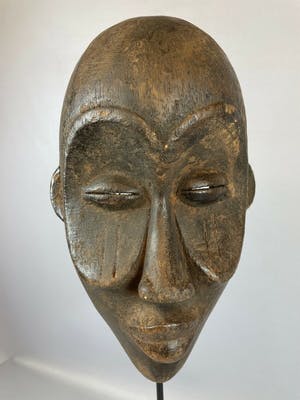
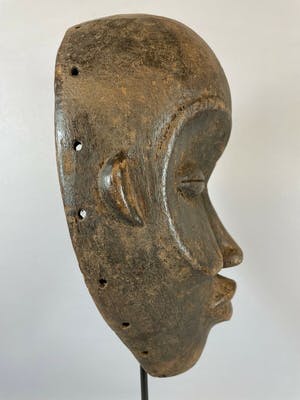
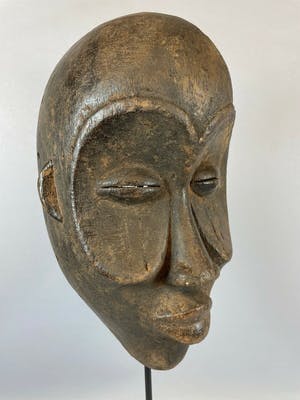
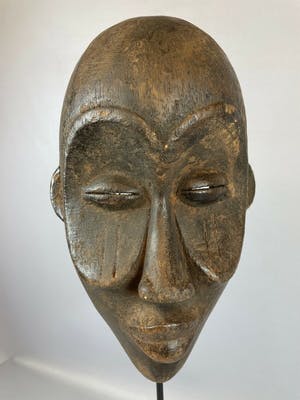
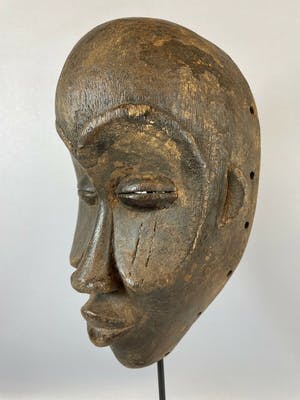
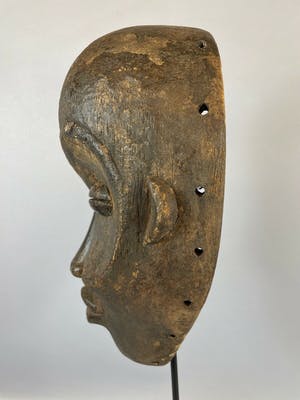
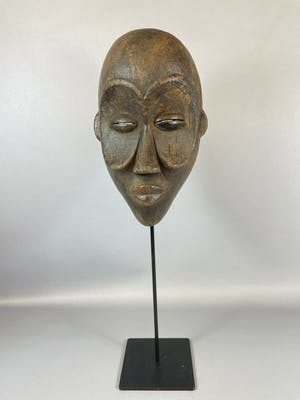
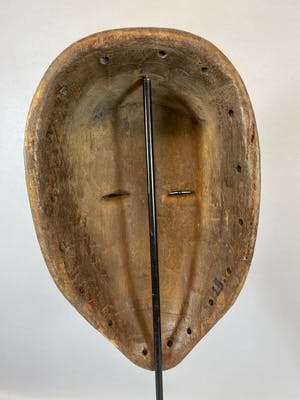
 Congolees
Congolees